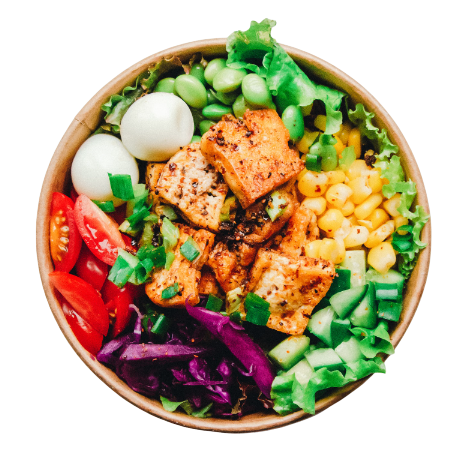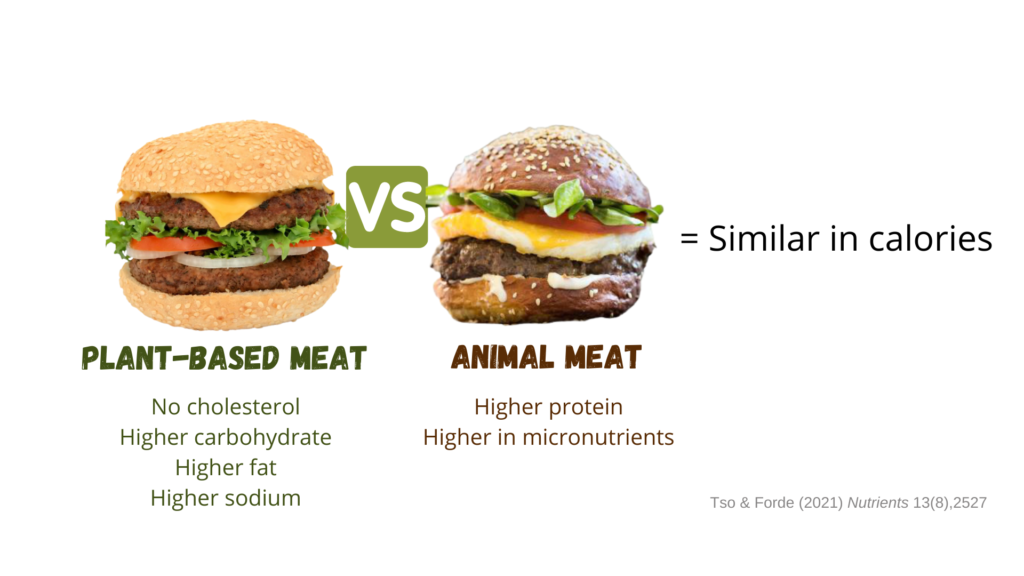Flexitarianism is said to be good for people and planet
Vegans and vegetarians enjoy a number of health benefits:
They live longer.
They have lower risks of diabetes, heart disease and cancer.
They have a healthier weight.
Our planet benefits too: Vegetarian and vegan diets emit much less greenhouse gases and use fewer natural resources. Meat production to feed the global population uses significant land, water and animal feed and contributes to pollution and global warming.
However, many people find cutting out all animal products too difficult – or they don’t want to. A more feasible approach might be to become flexitarian. Estimates say if a large number of people reduced their intake of animal products by two-thirds, the environmental benefits would surpass those of vegetarian diets.

Consumers need to consider the whole meal
Burgers, meatballs and sausages are currently the top-selling plant-based protein products. They are often, however, ultra-processed fast-food items that are usually eaten with chips and sugar-sweetened drinks. These nutrient-poor additions contribute substantial calories. This offsets any health benefits of swapping to plant-based burgers.

Yet, the “health halo” surrounding these new plant-based fast-food products could be attracting new flexitarians.
A health halo is the perception that a food is good for you even with little/no evidence.
Consumers need to choose nutritious alternatives
Novel plant-based meats are not as nutritious as traditional plant foods like beans, tofu and nuts. A recent study (see below) found that novel plant-based diets:
- Contained higher fat, sodium and sugar levels
- Lacked important micronutrients.
When comparing specific diets, it found that:
- Flexitarian and vegetarian diets based on traditional plant foods were the most nutritious overall.
- Vegan diets based on novel plant-based meats and dairy alternatives
- were the least nutritious.
- did not meet daily requirements for several micronutrients.
- Plant-based meats had similar calories as animal meats, but were
- higher in carbohydrate, fat and sodium
- lower in protein and micronutrients.

So, choose carefully when transitioning to a flexitarian, vegetarian or vegan diet.
Flexitarianism has unexplored psychological impacts
Flexitarian diets may appeal to some individuals who want control over their diet.
Diets that involve cutting down meat carry the promise of better health and weight loss. Therefore, some may pursue flexitarian diets for the wrong reason, that is, to lose weight quickly instead of wanting to be healthier.
Also, when some flexitarians talk about their diet, they refer to meat as a ‘bad food’.
Flexitarianism is also a difficult diet to follow. Individuals must consistently resist temptation and decide when and when not to eat meat. This is in contrast to vegetarians or vegans who cut out a group of foods completely.
Our project has a clear focus
We are:
Working with the food industry to increase nutritious options for plant-based meals.
Studying the impact of different meat alternatives on health.
Trying to understand people’s motivations for becoming flexitarian.
Providing consumers with information to make the right choices.
The aim is to make nutritious and tasty plant-based alternatives easy to incorporate into our everyday diets.
Read the study on comparing different diets: Tso/Forde. (2021) Unintended Consequences: Nutritional Impact and Potential Pitfalls of Switching from Animal- to Plant-Based Foods https://www.mdpi.com/2072-6643/13/8/2527/htm
Read why consumers choose alternative proteins: Tso/Forde. (2020) A Critical Appraisal of the Evidence Supporting Consumer Motivations for Alternative Proteins https://www.mdpi.com/2304-8158/10/1/24
Florence Sheen & Rachel Tso, 3 Sep 2021

Hsv Solution for all,……………………………..